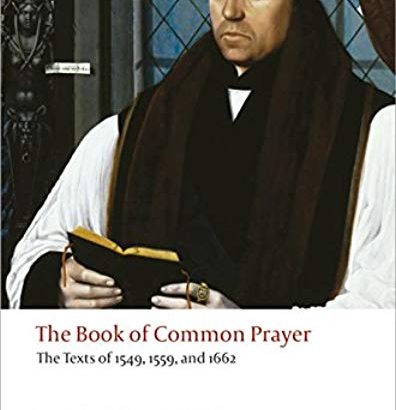The Book of Common Prayer: The texts of 1549. 1559, and 1662
edited with an introduction and Notes by Brian Cummings (Oxford World Classics, £10.99)
Though its influence over English life and writing since the reign of the Tudors has been immense, almost as great as the King James Bible itself, the Book of Common Prayer, the essential text for the communal life of the Anglican Communion, has long been misunderstood.
Indeed it is a book which Catholics, especially perhaps those who live in Ireland, are unaware of. This is a pity, if only from the point of view of providing a sense of history and present-day ecumenism. But this may be about to change, even here.
The Personal Ordinate of Our Lady of Walsingham in England and Wales, the ‘home in Rome’ for former Anglicans, is now allowed to use the Book of Common Prayer, making it in effect a document of the Catholic as well as Anglican Church.
So perhaps it behoves Catholics to learn more about it. This new Oxford University Press paperback edition comes with an introduction and notes which will fill in the background and the long and controversial history of the manual.
There are many things that might be said about this collection of Christian invocations and acts. But one is, that despite being a product of the Reformation in its various stages, it is deeply rooted in its origins and derivation in the Catholic Middle Ages.
Presbyterians, for instance in those centuries of dispute, sought to have the biblical authority of Catholic forms investigated. This was done by various Anglican scholars who, in effect, traced the materials sanctioned in these pages, back not to just to the middle ages, but to before the 6th Century.
The introduction by the distinguished academic Brian Cummings of York University will provide all that anyone making an initial contact with the book will need to begin their journey, aided perhaps by his smaller popular book.
“Designed in the 1540s as a radical Protestant answer to Catholic ‘superstition’, he notes, “within a century radical Christians regarded the Book of Common Prayer as itself ‘superstitious’ and even (paradoxically) ‘papist’.”
The book as it now stands provides a core element in the life of the Anglican Church. It permeates its daily life and the lives of its adherents. There must be many who regret that Catholics having given up the use of a missal have lost a sense of communal worship and prayer in a way Anglicans have not.
Though the creation of the Ordinate gave rise to ill-feelings and dismay among many Anglicans, suspicious of Rome’s motives, perhaps the effect in the end will not be so much as to Romanise the Anglicans but to Anglicanise the Catholics of England. This would certainly be a strange result.
But in the meantime mere contact with the Book of Common Prayer may prove not just a source of information for Catholics, but perhaps of enlightenment and inspiration.
Perhaps some Catholics may come to think that the people in the Sunday pews of their churches deserve and need something similar.


 Peter Costello
Peter Costello
